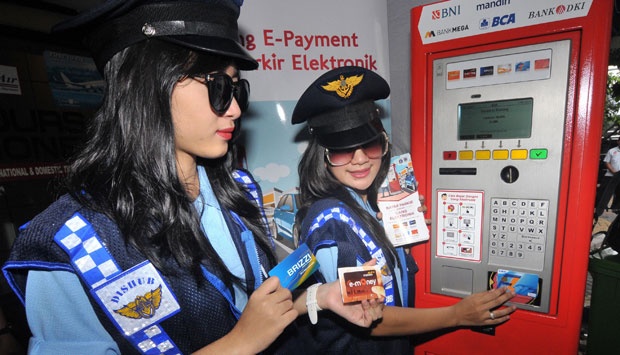
TEMPO.CO, Jakarta - The use of electronic payment is a reality in this digital age. It is not surprising that many are predicting that the use of cash will soon come to an end. Consumers are making use of these convenient transactions to pay for transport, give to charities and to buy and sell goods.
The increase in electronic payments is clearly good news. The many methods available has made financial transactions easier and reduce the costs incurred by printing currency. Consumers can pay whenever and wherever. Meanwhile, Bank Indonesia does not have to frequently replace banknotes in circulation. This is in line with the government’s aim of promoting the National Non-cash Movement, which Bank Indonesia has been campaigning for in the last five years.
The effect of the endeavor to persuade the public to get used to using non-cash payment methods began to be felt after server-based electronic cash such as GoPay, OVO, Dana and LinkAja appeared in the digital wallet market over the last three years. They complimented the chip-based electronic payment systems already in use, such as e-Money, Flazz and Brizzi. The number of entities holding electronic cash permits as of May totaled 38 companies.
The sharp rise in the use of electronic cash has been noted by Bank Indonesia. At the end of 2018, there were 2.9 billion electronic transactions with a total value of Rp47.2 trillion. This was a threefold increase over the previous year, when the total value was Rp12.4 trillion. The use of electronic cash in the year to June reached Rp69 trillion. The inclusivity of using electronic cash for public services, such as paying highway tolls, added to this increase in number and value. This is a sharp contrast with the situation one year after the National Non-cash Movement began, when electronic transactions stood at Rp5.3 trillion, an increase of only Rp2 trillion over the 2014 figure.
In the midst of the tough competition, Bank Indonesia – as the regulator – must push for healthy competition between companies. Only this way will they be spurred on to seek innovations to make transactions more efficient and gain a competitive edge. Non-cash payment systems that are more practical, safe and efficient will ultimately benefit their customers. These efficiencies will also mean that these companies will be able to survive in the market.
The growth in the use of non-cash transactions will not only bring benefits to consumers, but also to the merchants they partner with. For example, there are now 400,000 merchants accepting GoPay. Most of them are micro, small and medium-sized enterprises. The increase in the value of transactions automatically increases their incomes. This way, the digital payment ecosystem can flourish.
However, it is important to watch out for predatory pricing by reducing prices to below economic cost in order to kill off the competition. This is done by continuously ‘burning money’ to finish off competitors. This leaves the perpetrator as the sole player in the market. This is usually done by companies with sizable assets. Indications of it include offering consumers frequent discounts and cashback promotions. Price subsidies are at odds with the principle of healthy competition.
If a monopoly emerges, or if the market comes to be controlled by a few operators, consumers will lose out because there will be less choice. The National Non-cash Movement could fade away. The regulator must prevent the occurrence of a monopolistic market.
Read the Complete Story in this Week's Edition of Tempo English Magazine





















